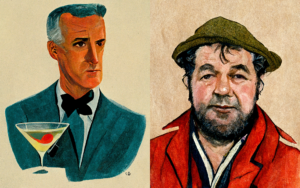
Ho’oponopono And The Law Of Neutrality
There is no neutrality in the universe. It’s only because of our personal experiences and relationships that we label things as good or bad, rich or poor, enough or not enough.
Some people may think earning £18 an hour is a great deal, since they’ve only earned modest amounts in the past, and they’ve adapted their lifestyle accordingly.
£18 an hour could represent a drastic drop in pay for someone who has always made significantly more. This could also represent a change in lifestyle because they’re used to higher incomes.
2,000 square feet might seem large to someone who grew up in a smaller house, yet to someone who has always had twice the space, 2,000 square feet seems tiny.
Does £18 an hour seem like a lot or a little to you? How big or small is 2,000 square feet? In both cases, they’re neutral. Our labels are a reflection of the experiences we have lived through.

Keep your biases in mind and don’t label different experiences judgementally. A person who has less than you can give you a new perspective when you feel like you don’t have enough.
Seeing that you have plenty can help you feel more grateful and appreciative in your everyday life.
Ho’oponopono can come to our aid because although everything written here may be logical, rationally understanding The Law of Neutrality doesn’t automatically make it easy to bear the consequences of ‘seeming’ inequality.
Every apparent ‘difference’ is based upon Karmic Memories made up of Data stored in your subconscious mind. By clearing out this data (or rather the emotions it evokes within us) we can begin to appreciate our lives from the perspective of The Law of Neutrality.
This understanding is a ‘knowing’. It’s a behavioural shift that has nothing to do with your intellect and everything to do with your sense of being.
To call it ‘understanding’ may be wrong. It’s more of a feeling; a certainty that The Law of Neutrality is correct. There is nothing left for us to do to make it so. It IS what it IS anyway.
There is a Zen story about neutrality which describes its nature well:
An old farmer and his sick horse were working in the field late one summer day. He wished to lift the horse’s burden out of compassion for it. As a result, he let the horse roam free in the mountains for the remainder of its lifetime.
A neighbour from the nearby village visited, offering his condolences and saying, “How unfortunate for you. Now your only horse is gone. How will you live, work the land and prosper?” The farmer responded, “Who knows? We shall see.”
After meandering in the mountainside for two days and eating wild grasses, the old horse returned. He brought twelve younger and healthier horses to the corral with him.
The news of the old farmer’s good fortune spread quickly through the village. Soon, people were stopping by to congratulate him on his good luck. “How fortunate you are!” they exclaimed. “You must be very happy!” Again, the farmer softly said, “Who knows? We shall see.”
Early the next morning, the farmer’s son went out to try and train the new horses. Unfortunately, he got bucked off and broke his leg. People from the village came throughout the day to commiserate with the farmer.
“That’s really unfortunate. I’m sure it’s going to be a lot of work for you now that your son can’t help you farm. You must be feeling really down about it. How are you going to make it work?” they said. The farmer calmly went about his usual business and answered, “Who knows? We shall see.”
A few days after that, a war started. The Emperor’s forces came to the village and demanded that all the young men come with them to join the Emperor’s army.
The farmer’s son was deemed unfit because of his broken leg. “What a shame,” the villagers said as their own young sons were marched away.
“You must be very happy.” “Maybe, who knows? We’ll see!”, replied the old farmer as he headed off to work in his field alone.
As time passed, the broken leg healed but the son was left with a slight limp. Again the neighbours came to offer their condolences. “Oh what bad luck. Too bad for you”! Yet the old farmer simply replied; “Who knows? We shall see.”
The old farmer was always a kind man, despite his recent string of bad luck.
After it was learned that the other young village boys had died in the war. The old farmer and his son were the only able-bodied men capable of working the village lands. The old farmer became wealthy and was very generous to the villagers, which made everyone happy.
They said, “Wow, you must be really happy,” and the old farmer replied, “We’ll see.”
The thrust of the story isn’t that the farmer experienced a number of ‘ups’ and ‘downs’, or is it that ‘finally’ he was able to help members of his community. He was content to experience life as a process, without seeking to over-control it. ‘Good’ fortune and ‘ill’ fortune were equal for him. In this sense, he is a perfect exemplar of The Law of Neutrality.
You don’t need to become a Taoist (or Zen Buddhist) to experience The Law of Neutrality for yourself. Just practice ho’oponopono. Delete your personal Karmic Data and you’ll soon be able to appreciate this important universal law for yourself.



You May Also Like

Navigating the Ocean of Life: Unraveling the Ho’oponopono Technique

Unveiling Ho’oponopono: The Sweet Healing Power of Strawberries and Beyond
